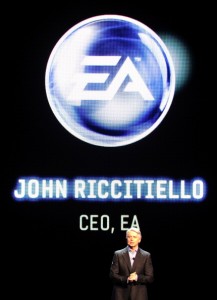
The surge in the popularity of games in recent years has made it even harder to ignore the necessity of having a universal game rating system, believes Electronic Arts (EA) CEO and chairman of the US Entertainment Software Ratings Board (ESRB) John Riccitiello.
Speaking to the guests at an event in Washington DC yesterday, the publishing executive stressed on the requirement of a rating system that would apply to all channels, platforms and regions.
He explained that even though the First Amendments has given them an immense amount of freedom, they still have certain responsibilities towards the consumers, which they can live up to by keeping the customer informed.
He pointed out that in the last three years, the number of people playing video games has gone above the one billion mark from a rough estimate of 200 million.
A different rating system used by various companies and regions ends up confusing these consumers, often failing to correctly indicate the age-appropriateness of the content in the game.
The advent of smartphones and rapidly increasing use of apps has also necessitated a global rating standard.
For the past three years, ESRB representatives have been trying to talk the market leaders, namely Google, Apple and Facebook, into adopting the standardised rating system, something that other hardware providers and mobile service companies have adopted already.
“Consumers are finding many new places to get their games – Facebook, Google, Apple, as well as services like Steam and Origin. Most have a rating system, but none are consistent. Consequently, we are confusing the consumer,” Riccitiello stated.
He conceded that the self-regulatory body and the three companies are working in “good faith” towards the desired rating system to help the consumers make a more informed choice.
“The elegance of this concept is not just in its simplicity, but in the way it balances local cultural norms with a common global standard,” he said.
Coming up with a standardised rating system is becoming increasingly important because of the content that has begun to make its way into the games over the last few years.
The developers have gotten really bold with the content and while violence has been an integral part of games since decades, the availability of better technology had allowed them to blue boundaries that help to differentiate between cartoonish images of violence and realistic images.
Abusing, nudity and sex are also becoming pretty common in video games these days, with some of the most renowned franchises such as Grand Theft Auto and God of War featuring plenty of such content.
Parents naturally want to protect their children from getting exposed to such material and therefore rely heavily on the ESRB rating on the game’s cover.